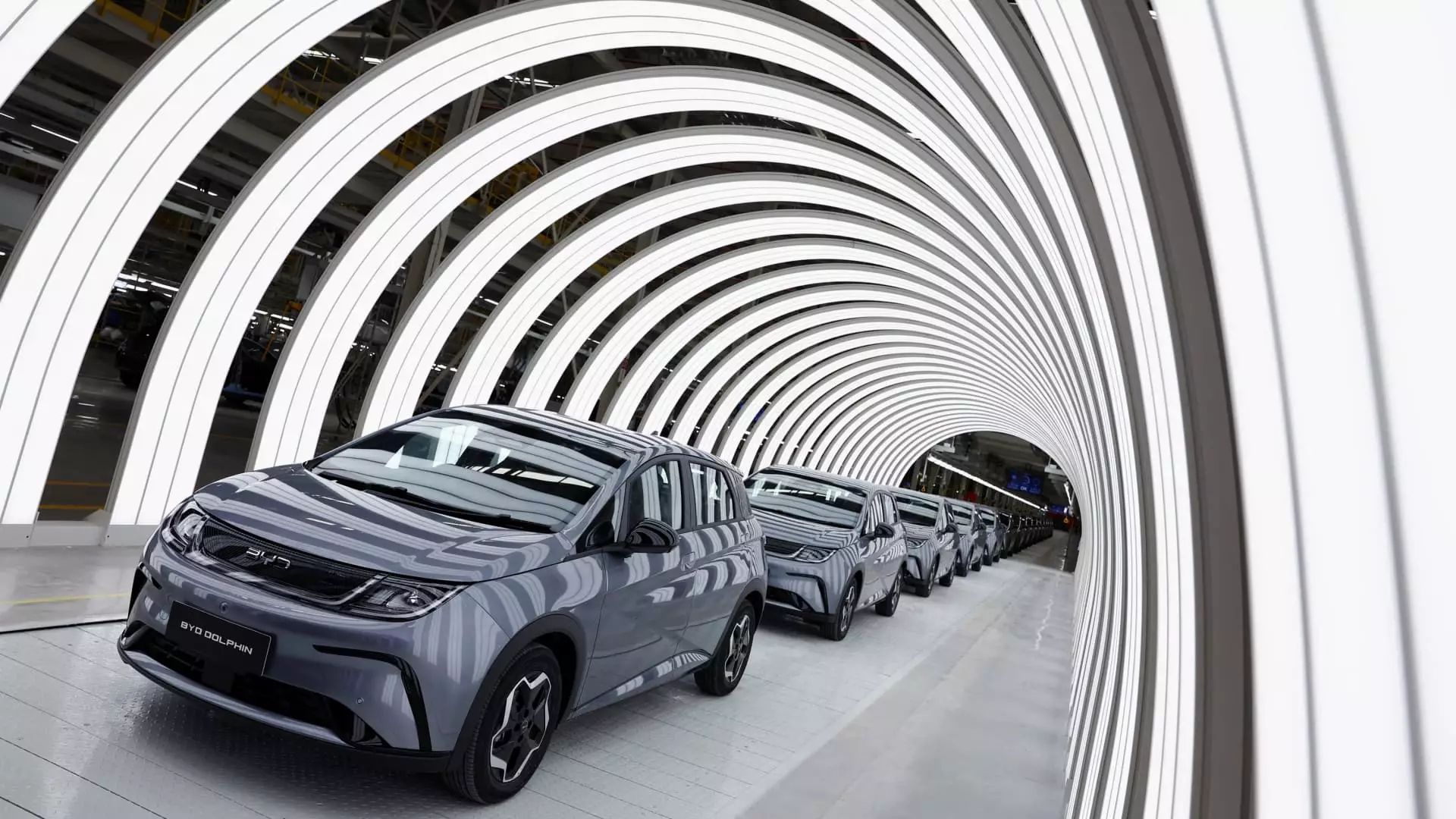Despite its relative youth in the automotive sector, BYD (Build Your Dreams) is swiftly carving out a formidable presence in the electric vehicle market, particularly through advanced driver-assistance systems (ADAS). The company’s recent initiatives signal not only its ambitious plans but also a ripple effect on its associated suppliers and the broader automotive industry. As competition intensifies, the implications of BYD’s developments extend beyond its own corporate gains, potentially reshaping the landscape of smart driving in the automotive arena.
BYD’s foray into sophisticated driver-assistance technology has resulted in record-high stock prices for the company, buoyed by the successful launch of a new ADAS designed for various vehicle models, including an affordable option priced below 70,000 yuan (approximately $9,600). Such initiatives reflect a strategic decision to amplify their technological capabilities, especially in a market where consumers increasingly prioritize intelligent driving features. Analysts believe that BYD’s integration of DeepSeek’s AI technologies will allow the company to enhance its driver-assistance offerings, revealing a commitment to leading the charge in a rapidly advancing market.
The demand for ADAS is not merely a BYD-centric narrative; it signals a shift across the entire automotive industry. Nomura analysts have highlighted the likelihood of robust growth for companies supplying components to BYD’s new system. As automakers scramble to upgrade their capabilities to remain competitive, the attention on developing intelligent driving functions is projected to generate increased demand for related parts and technology. This trend illustrates a collective shift towards smarter, safer vehicles—a move that might redefine how consumers interact with their cars.
Nomura’s analysis points to specific beneficiaries among BYD’s suppliers, notably BYD Electronics, Horizon Robotics, and Hesai Tech. These companies are poised to capitalize on the surging interest in smart driving solutions. BYD Electronics manufactures critical autonomous driving components, while Horizon Robotics provides essential semiconductor technology. Hesai Tech, specializing in lidar systems, offers innovative sensors that are integral to the functionality of ADAS.
Horizon Robotics, which has been mentioned as a key player in this emerging sector, has received increased attention due to its Journey 6 chipset series. Goldman Sachs forecasted that this product line could significantly contribute to revenue growth, projecting its share of revenue will skyrocket from 3% this year to 40% by 2027. Such optimism highlights not merely the growth potential for Horizon Robotics but also the vital role that semiconductor technology plays in the future of vehicle automation.
The Competitive Landscape and Global Dynamics
BYD’s advancements have undoubtedly rattled competitors in the electric car space, notably Tesla. Following the announcement of its new driver-assistance system, Tesla’s shares plummeted, illustrating the competitive edge BYD appears to be gaining. The fact that Tesla’s Full Self-Driving feature is still awaiting approval in China suggests that BYD’s timely developments can leverage local market dynamics more effectively.
The geopolitical climate, particularly the United States’ technological restrictions, has catalyzed China’s overarching strategy towards self-reliance in technology, facilitating homegrown manufacturers like BYD. As a result, BYD’s focus on the domestic market first—evidenced by the targeted launch of its driver-assistance technologies—positions it advantageously to meet local consumer demands while navigating the complexities of international trade restrictions.
The Future of Mobility and Consumer Expectations
The automotive industry is standing at a pivotal crossroads. With consumer expectations evolving, the demand for advanced driving features is expected to increase dramatically. Analysts predict that over three million BYD vehicles will implement advanced driver-assistance technology this year. The burgeoning interest in smarter vehicles that come equipped with functionalities enhancing safety and convenience illustrates a transformative period in mobility.
Furthermore, the various tiers of BYD’s “Dipilot” driver-assist systems cater to different market segments. The lower-cost options, which employ technology from Horizon Robotics and Nvidia, demonstrate a keen understanding of varied consumer needs, appeals to budget-conscious buyers while still embracing innovation.
BYD’s recent developments in driver-assistance systems are not merely corporate milestones; they recalibrate the expectations within the wider automotive industry. By fostering a culture of innovation and prioritizing strategic partnerships, BYD is set not only to enhance its market position but also to influence an array of suppliers and competitors alike. As the industry continues to navigate the electrification and automation trends, BYD is poised to play a leading role in shaping the future of mobility.

